第52章
What is it that constitutes the manners of nations, by which the people of one country are so eminently distinguished from the people of another, so that you cannot cross the channel from Dover to Calais, twenty-one miles, without finding yourself in a new world? Nay, I need not go among the subjects of another government to find examples of this; if I pass into Ireland, Scotland or Wales, I see myself surrounded with a new people, all of whose characters are in a manner cast in one mould, and all different from the citizens of the principal state and from one another. We may go further than this. Not only nations, but classes of men, are contrasted with each other. What can be more different than the gentry of the west end of this metropolis, and the money-making dwellers in the east? From them I will pass to Billingsgate and Wapping. What more unlike than a soldier and a sailor? the children of fashion that stroll in St. James's and Hyde Park, and the care-worn hirelings, that recreate themselves, with their wives and their brats, with a little fresh air on a Sunday near Islington? The houses of lords and commons have each their characteristic manners. Each profession has its own, the lawyer, the divine, and the man of medicine. We are all apes, fixing our eyes upon a model, and copying him, gesture by gesture. We are sheep, rushing headlong through the gap, when the bell-wether shews us the way. We are choristers, mechanically singing in a certain key, and giving breath to a certain tone.
Our religion, our civil practices, our political creed, are all imitation. How many men are there, that have examined the evidences of their religious belief, and can give a sound "reason of the faith that is in them?" When I was a child, I was taught that there were four religions in the world, the Popish, the Protestant, the Mahometan, the Pagan. It is a phenomenon to find the man, who has held the balance steadily, and rendered full and exact justice to the pretensions of each of these. No: tell me the longitude and latitude in which a man is born, and I will tell you his religion.
By education most have been misled;
So they believe, because they so were bred:
The priest continues what the nurse began, And thus the child imposes on the man.
And, if this happens, where we are told our everlasting salvation is at issue, we may easily judge of the rest.
The author, with one of whose dicta I began this Essay, has observed, "One generation passeth away, and another generation cometh; but the earth abideth for ever." It is a maxim of the English constitution, that "the king never dies;" and the same may with nearly equal propriety be observed of every private man, especially if he have children. "Death," say the writers of natural history, "is the generator of life:" and what is thus true of animal corruption, may with small variation be affirmed of human mortality. I turn off my footman, and hire another; and he puts on the livery of his predecessor: he thinks himself somebody; but he is only a tenant. The same thing is true, when a country-gentleman, a noble, a bishop, or a king dies. He puts off his garments, and another puts them on. Every one knows the story of the Tartarian dervise, who mistook the royal palace for a caravansera, and who proved to his majesty by genealogical deduction, that he was only a lodger. In this sense the mutability, which so eminently characterises every thing sublunary, is immutability under another name.
The most calamitous, and the most stupendous scenes are nothing but an eternal and wearisome repetition: executions, murders, plagues, famine and battle. Military execution, the demolition of cities, the conquest of nations, have been acted a hundred times before. The mighty conqueror, who "smote the people in wrath with a continual stroke," who "sat in the seat of God, shewing himself that he was God," and assuredly persuaded himself that he was doing something to be had in everlasting remembrance, only did that which a hundred other vulgar conquerors had done in successive ages of the world, whose very names have long since perished from the records of mankind.
Thus it is that the human species is for ever engaged in laborious idleness. We put our shoulder to the wheel, and raise the vehicle out of the mire in which it was swallowed, and we say, I have done something; but the same feat under the same circumstances has been performed a thousand times before. We make what strikes us as a profound observation; and, when fairly analysed, it turns out to be about as sagacious, as if we told what's o'clock, or whether it is rain or sunshine. Nothing can be more delightfully ludicrous, than the important and emphatical air with which the herd of mankind enunciate the most trifling observations. With much labour we are delivered of what is to us a new thought; and, after a time, we find the same in a musty volume, thrown by in a corner, and covered with cobwebs and dust.
This is pleasantly ridiculed in the well known exclamation, "Deuce take the old fellows who gave utterance to our wit, before we ever thought of it!"
The greater part of the life of the mightiest genius that ever existed is spent in doing nothing, and saying nothing. Pope has observed of Shakespear's plays, that, "had all the speeches been printed without the names of the persons, we might have applied them with certainty to every speaker." To which another critic has rejoined, that that was impossible, since the greater part of what every man says is unstamped with peculiarity. We have all more in us of what belongs to the common nature of man, than of what is peculiar to the individual.